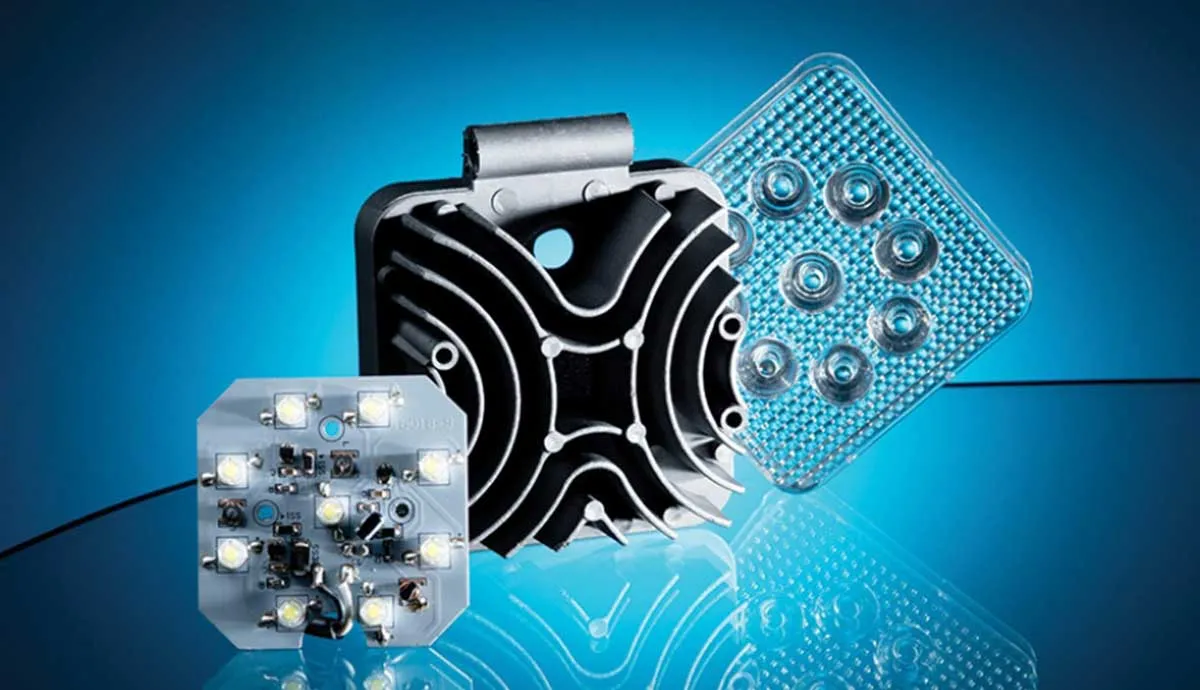The Challenge
Mars Otomotiv’s engineering team was on the hot seat.
Since its founding in 2004, the Istanbul, Turkey-based maker of lighting for the global auto and transportation industries had built a good part of its thriving business around LED products. But manufacturing High Brightness LED lighting isn’t simple.
While LEDs generate less heat than incandescent bulbs, they are more sensitive to it. For LEDs, heat needs to be effectively dissipated to prevent premature failure. This dissipation is typically handled by a heat sink, but the aluminum one used by the company was becoming a problem.
The part – sourced from a sub-supplier – required secondary work by Mars Otomotiv, including removal of flash, drilling holes and surface treatment to prevent corrosion. Using a supplier for the parts also led to unexpected costs and shipping delays, created logistics challenges and tied up stock and working capital.
The Mars Otomotiv engineering team needed to eliminate all of these issues by finding a different material for the heat sinks. They also wanted to be able to form the parts onsite without any of the costly finishing processes. If, in the process, the solution delivered a lighter-weight part that would be a great value add for Mars Otomotiv’s customers, which were always trying to cut weight to reduce the carbon emissions of the their vehicles.
The Solution
As part of their search for an alternative, Mars Otomotiv’s engineers met with Avient to explore non-metal options for the part. Working together, the group determined that Therma-Tech™ thermally conductive polymers had all the necessary properties to replace the aluminum heat sinks. They eventually settled on Therma-Tech TT6600-5001EC as the best solution to provide comparable heat dissipation.
But a significant hurdle remained: the cost of retooling. Mars Otomotiv owned the tooling used to form the metal heat sinks. It wanted to adapt the existing mold to accommodate the new material so it could avoid the time and capital expense of having a new one built.
Again working in tandem, the Mars Otomotiv engineers and Avient’s technical team were able to alter the mold so it could process the thermoplastic in place of aluminum. They completed the metal-to-plastics transition in less than four months – bringing production in-house while using the same tooling.
The Impact
Today, Mars Otomotiv benefits from the simplified logistics of molding polymer heat sinks in-house – including reduced order lead time, improved on-time order completion and more free-working capital.
The thermal dissipative performance of the thermoplastic heat sink is equivalent to that of aluminum – even for the highest-power HB LED model, which provides 27 total watts in nine HB LEDs.
Specific gains include:
• 39 percent reduction in the weight of finished assemblies
• 50 percent increase in the number of molded heat sinks produced each day
• 20 percent reduction in the total cost to produce each heat sink
• Elimination of secondary finishing operations
In 2013, the Mars LED assembly was honored as a finalist in the annual Automotive Innovation Awards competition of the Society of Plastics Engineers (SPE).

